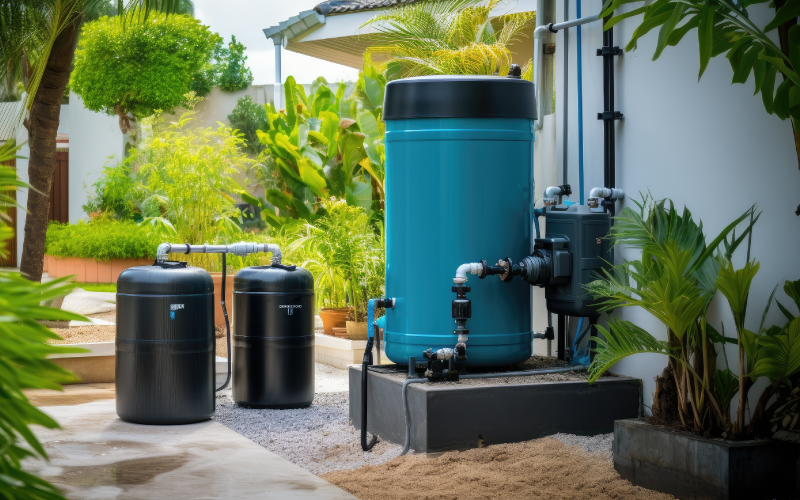
Research reveals multiple benefits of rainwater harvesting
Recent research has revealed the potential benefits of rainwater harvesting systems for gardens of all scales, from small domestic plots to large public parks and gardens. Their potential exists in terms of not only helping to ensure gardens are self-sufficient during periods of low rainfall but also their ability to support urban flood resilience.
A recent study focusing on five RHS gardens: (Bridgewater, Hyde Hall, Harlow Carr, Rosemoor and Wisley) assessed the hydrological viability of rainwater harvesting (RWH) to address irrigation demands within landscape and public gardens.
Most public gardens currently rely on a combination of public mains water and groundwater abstraction for irrigation. However, irrigation from these sources is often restricted during drought events and, given the likelihood of longer, more extreme drought events being predicted with a high level of confidence, alternative sources will be required to reduce the vulnerability of gardens in the future.
On a smaller scale, domestic users of mains water are also likely to face similar challenges; use of a hose pipe is one of the first activities temporarily banned during a drought event.
Whilst RWH potential varies widely due to differences in site characteristics, the presence of permeable and impermeable surfaces and climate variability, findings suggest harvested rainwater could provide a valuable additional water source for irrigation that could significantly reduce the vulnerability of nationally important gardens and visitor attractions due to abstraction restrictions in dry years. Similarly, domestic rainwater harvesting systems may also be installed to ensure homeowners can continue applying water with a hose throughout a temporary use ban.
Trails overseas in domestic urban areas revealed between one-third and half of all gardens had the potential to meet their own water resource needs, through the implementation of rainwater harvesting systems.
Over the coming months, the Association will work with supplier members and specifiers to explore the ways in which domestic and commercial rainwater harvesting systems can be implemented.
Further information
On the Effectiveness of Domestic Rainwater Harvesting Systems to Support Urban Flood Resilience
